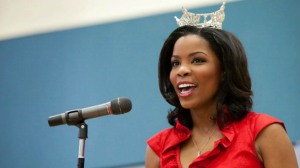With the summer issue of the Oral History Review just around the corner, we are bringing you a sneak peak of what’s to come. Issue 43.1 is our LGBTQ special issue, featuring oral history projects and stories from around the country.
The post Queer history happens everywhere appeared first on OUPblog.
On his recent visit to Kenya, President Obama addressed the subject of sexual liberty. At a press conference with the Kenyan President Uhuru Kenyatta, he spoke affectingly about the cause of gay rights, likening the plight of homosexuals to the anti-slavery and anti-segregation struggles in the United States.
The post Compassionate law: Are gay rights ever really a ‘non-issue’? appeared first on OUPblog.
Like many, I’m still digesting the Supreme Court’s Obergefell decision—not just its text, but its personal and social significance. When I wrote Debating Same-Sex Marriage with Maggie Gallagher (Oxford University Press, 2012), only a handful of states permitted same-sex couples to marry. In the three years since, that handful grew to dozens; last Friday’s decision grows it to all 50. One striking thing about the decision itself is the importance of the definitional question: What is marriage?
One striking thing about the decision itself is the importance of the definitional question: What is marriage?
If the state prohibits same-sex couples from marrying, does it thereby interfere with their liberty, as the majority argues, or does it simply decline to grant them certain benefits? If the latter, is it treating them unequally—and thus violating the Equal Protection clause of the 14th Amendment—by privileging certain citizens without sufficient reason for the distinction? The answer depends on what marriage is. If marriage by definition requires (at least) one man and one woman, then same-sex “marriage” is impossible by definition, and one does not treat people unfairly by denying them something impossible.
The post What marriage (equality) means appeared first on OUPblog.
Sometimes, we say what we don’t really mean. ‘You look really tired’, for example, when we mean to be caring rather than disparaging of appearance. ‘I thought you were older than that!’ when we mean to applaud maturity rather than further disparage appearance. And so it is with the gay thing. The accidental difference between what people are saying or writing, and their intended meaning, is becoming perplexingly polarized.
The post Clarity about ‘the gay thing’ appeared first on OUPblog.
In 2010, Djuan Trent made history when she became one of four African-American women to win the pageant title of Miss Kentucky. Earlier this month, she made history yet again.
On her blog, Life in 27, Trent opened up about her sexuality and announced that she was “queer,” becoming the first contestant to publicly come out as queer.

Former Miss Kentucky Djuan Trent. (Photo courtesy of Facebook/Kellie Carter Photography)
In the world of beauty pageants, an industry often accused of objectifying women and embracing outer beauty rather than inner beauty, it’s refreshing to see someone who is breaking down the barriers of what is “beautiful.” Trent struggled with whether she should come out or not, but ultimately, she decided it was something she needed to do, especially after a Kentucky federal judge overturned parts of Kentucky’s same-sex marriage ban in February and set an effective date for his ruling today.
Trent encourages others to follow her lead, saying, “People can’t know that their best friend, brother, sister, co-worker, neighbor, news anchor, favorite singer, or local coffee shop barista is being oppressed and denied the rights in which their heterosexual counterparts are so happily welcomed partake, unless you open your mouth and say it.”
We couldn’t have said it better.
Filed under:
Diversity Links,
Lee & Low Likes,
Musings & Ponderings Tagged:
beauty pageants,
djuan trent,
kentucky,
lgbtq rights,
miss kentucky 




